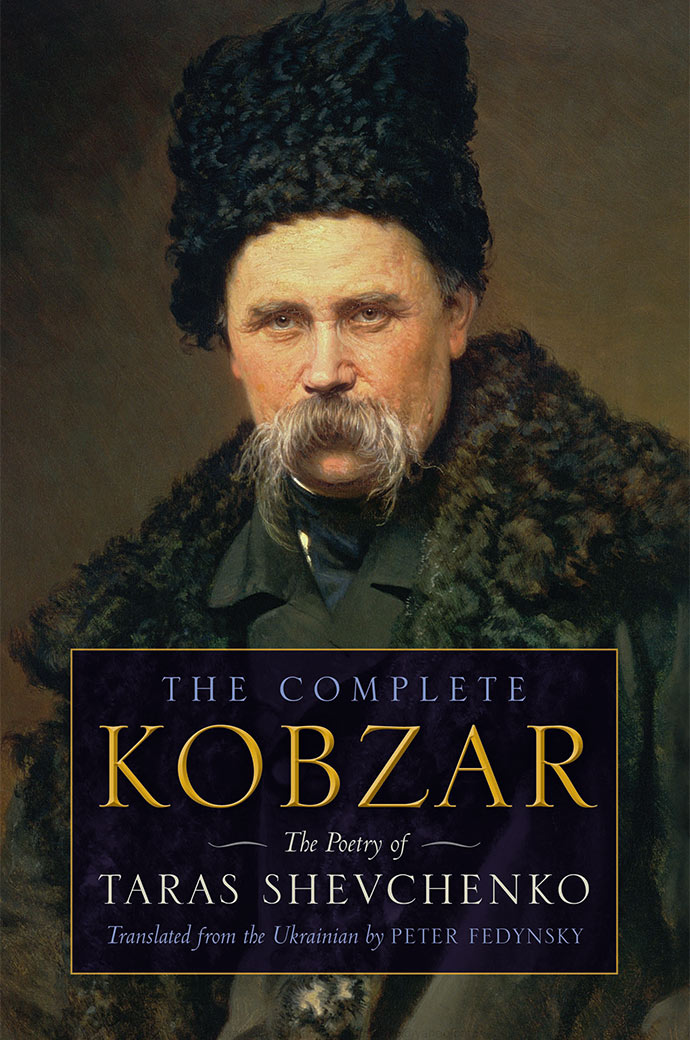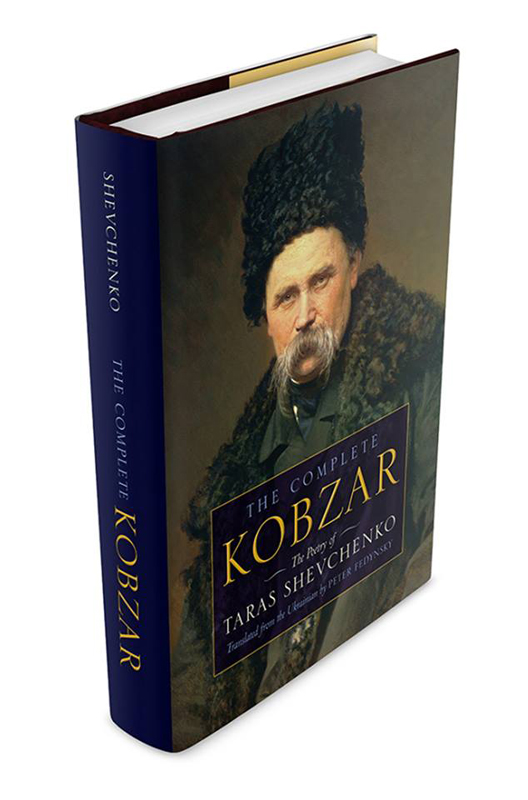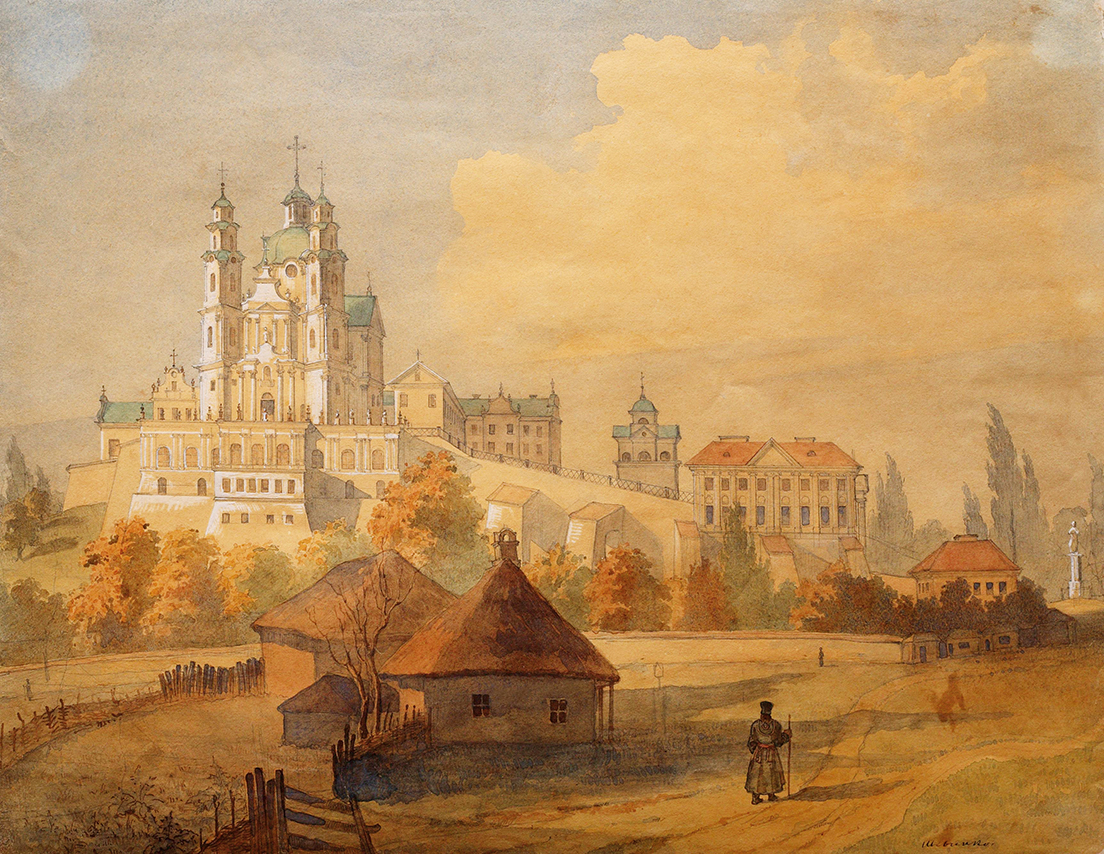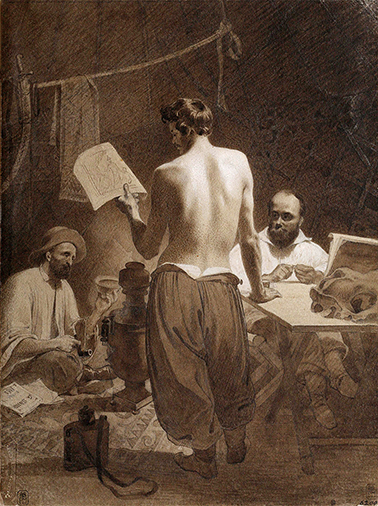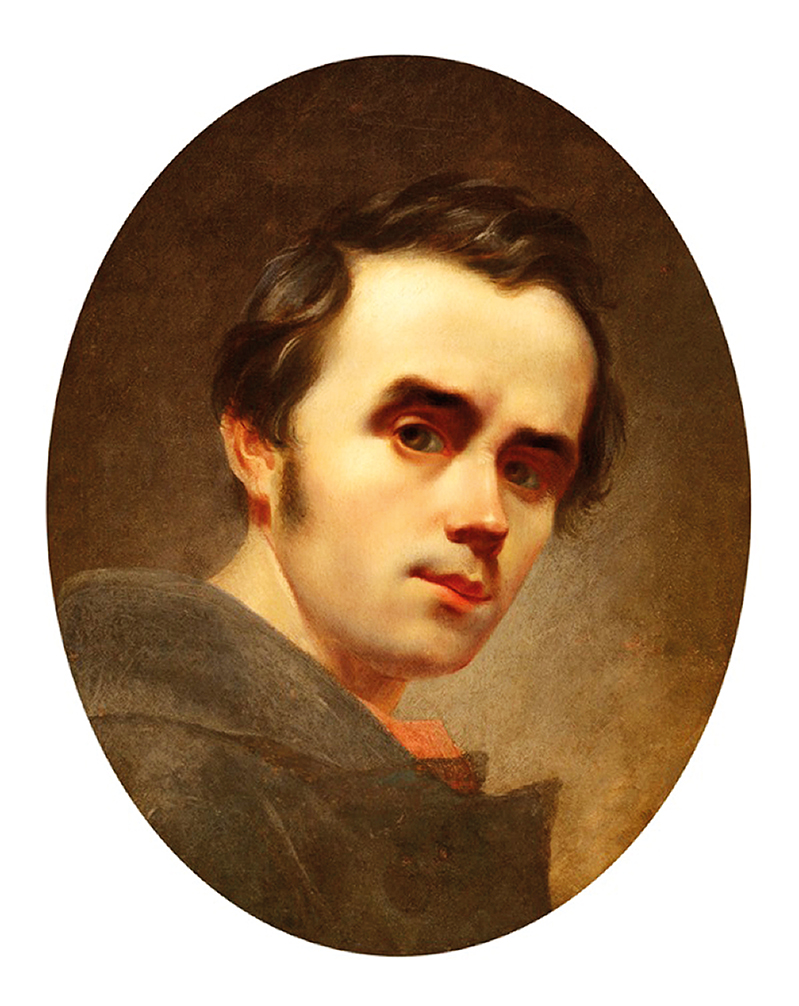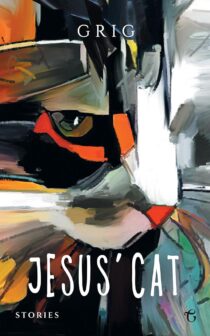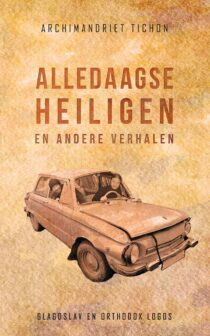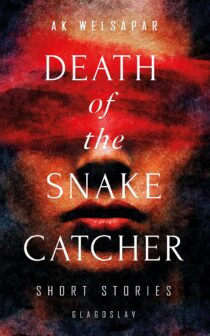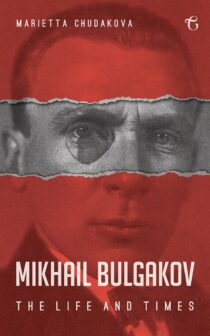Kobzar (Gift Edition)
€69.50
The Complete Edition. Illustrated
Author: Taras Shevchenko
Translator: Peter Fedynsky
Editor: Svitlana Bednazh
Masterfully fulfilled by Peter Fedynsky, Voice of America journalist and expert on Ukrainian studies, first ever English rendition of the entire Kobzar is coming as a gift edition, richly illustrated with Shevchenko’s paintings, etchings and drawings, aimed to increase awareness of the Ukraine’s cultural heritage. This separate gift edition is made possible by generous grants from The Ukrainian Institute of America, The Selfreliance Credit Union in New York, and the James Temerty Foundation in Canada. The Ukrainian Congress Committee of America will sponsor a Kobzar book tour in the United States during Shevchenko’s anniversary year.
Masterfully fulfilled by Peter Fedynsky, Voice of America journalist and expert on Ukrainian studies, first ever English rendition of the entire Kobzar is coming as a gift edition, richly illustrated with Shevchenko’s paintings, etchings and drawings, aimed to increase awareness of the Ukraine’s cultural heritage.
As a foundational text, The Kobzar has played an important role in galvanizing the Ukrainian identity and in the development of Ukrainian literature and its written language. The first editions were censored by the czar, but the book still made an enduring impact on Ukrainian culture. There is no reliable count of how many editions of the book have been published, but an official estimate made in 1976 put the figure in Ukraine at 110 during the Soviet period alone. That figure does not include Kobzars released before and after both in Ukraine and abroad. A multitude of translations of Shevchenko’s verse into Slavic, Germanic and Romance languages, as well as Chinese, Japanese, Bengali, and many others attest to his impact on world culture as well. The poet is honored with more than 1250 monuments in Ukraine, and at least 125 worldwide, including such capitals as Washington, Ottawa, Buenos Aires, Warsaw and Tashkent. Former U.S. President Dwight Eisenhower unveiled the one in Washington.
This separate gift edition is made possible by generous grants from The Ukrainian Institute of America, The Selfreliance Credit Union in New York, and the James Temerty Foundation in Canada. The Ukrainian Congress Committee of America will sponsor a Kobzar book tour in the United States during Shevchenko’s anniversary year.
| Dimensions | 17.0 × 26.0 mm |
|---|---|
| Author | Taras Shevchenko |
| Book Format | Hardcover (Gift Edition) |
| Publication date | 11th October 2013 |
| Pages | 516 pages |
Author
Taras Shevchenko
Taras Shevchenko (1814-1861) was a Ukrainian author and artist. The Kobzar, which he worked on for nearly 25 years, is considered his masterpiece. His works are celebrated worldwide in museums and cultural centres named after him.
Shevchenko has a special place in Ukrainian history: his poetry is considered to be a foundation for modern written Ukrainian and for Ukrainian literature. Aside from his literary work, his paintings earned him many awards and a professional title from the Imperial Academy of Arts.
Born into serfdom, Shevchenko experienced poverty from an early age. By the age of 11, he had lost both his parents, but before passing away, his father managed to get him an apprenticeship with a deacon, who taught the young boy to read and write. After the death of his parents, Shevchenko was an itinerant worker until the age of fourteen, when he became a house servant with his overlord, Pavel Engelhardt.
The boy showed an early talent for art. At 15, he travelled with Engelhardt to St. Petersburg and was given a series of apprenticeships. Eventually, he came to the attention of several prominent intellectuals, including Russia’s finest living painter, Karl Briullov, and poet Vasily Zhukovsky, who was the tutor of future Czar Alexander II. They bought Shevchenko’s freedom for 2,500 rubles by auctioning off one of Bruillov’s portraits of Zhukovsky. In 1838, Shevchenko was accepted into the Imperial Academy of Arts as Briullov’s student.
The first half of the 1840s is considered propitious for the artist. Having written poetry since 1837, Shevchenko published his first Kobzar in 1840. The collection earned him critical and popular acclaim, and his status as a cultural figure was on the rise. He returned to Ukraine for the first time at the age of 29, travelling extensively for a critical three year period from 1843-45 that resulted in a series of paintings and some of his most penetrating and patriotic verse. In Kyiv, he joined the Cyril and Methodius Brotherhood, a secret organization that advocated the abolition of serfdom and also the right of every Slavic nation to develop its own culture and language. His membership in the Brotherhood, deemed subversive by czarist authorities, as well as his controversial poetry, led to Shevchenko’s arrest in 1847. He was then exiled with a military detachment to Orenburg on the edge of the Ural Mountains. Czar Nicholas I personally prohibited Shevchenko from writing or painting.
Shevchenko, however, violated the Czar’s orders. Such insubordination led to even deeper banishment to the town of Novopetrovsk on the desolate eastern shore of the Caspian Sea. (In honour of the poet, the city was renamed Shevchenko in 1963). His friends, including members of the prominent Tolstoy family, appealed for his release, which finally came in 1857.
Shevchenko’s health was permanently affected by the ordeal, but his creative output remained strong. In 1860, the Imperial Academy of Arts honoured the artist with a professional academic title. Soon after, his health deteriorated and he died of heart failure on March 10, 1861— seven days before the abolition of serfdom was formally announced.
Translator
Peter Fedynsky gained translating experience as an international broadcaster with the Ukrainian Service at the Voice of America. During his 34-year career at VOA, Fedynsky hosted a Rock and Roll program transmitted to Soviet Ukraine, wrote a radio series in English on the theory and practice of democracy, and also served for more than 11 years as anchor of Window on America, a weekly TV news magazine in Ukrainian that was the first U.S. Government television program to go on the air overseas.
Fedynsky culminated his career in broadcast journalism as VOA Moscow bureau chief and New York TV correspondent. He also translated documents for the U.S. State Department and served as a simultaneous interpreter at high-level meetings between U.S. and Ukrainian officials. In addition, he was a Ukrainian and Russian-speaking guide on two U.S. Information Agency exhibits in Russia, Ukraine, Lithuania and Armenia. Fedynsky was born in Ashland, Pennsylvania to post-war Ukrainian immigrants and grew up in Cleveland, Ohio, where he was active in the local Ukrainian community as a scout leader and human rights activist. He was a German major at Ohio’s Bowling Green State University, having spent his sophomore year abroad at the University of Salzburg, Austria.
Endorsements and Review Quotes
An interview with Peter Fedynsky for WHATS ON
THE UKRAINIAN WEEKLY, SHEVCHENKO FOR ALL AGES (full review in PDF file)
“Contrary to the majority of preceding translators, to the entire school of literary, or artistic, translation which is much respected and highly developed in today’s Ukrainian translation tradition, Mr. Fedynsky defies Shevchenko’s rule of vocalic quality and the overall idealistic endeavor to recreate the source text’s vocal harmony, while concurrently remaining faithful to its semantic consistency.” Lada Kolomiyets, The Ukrainian Quarterly
“The unfolding drama in Ukraine makes the appearance of Peter Fedynsky’s translation of Shevchenko’s “Kobzar” all the more significant. This is the first English-language edition of all of Shevchenko’s Kobzar poems… We owe a tremendous debt to Fedynsky, a Voice of America journalist, for making Shevchenko’s “Kobzar” available in one volume.”
THE MOSCOW TIMES
Roman Czajkowsky of the Ukrainian Weekly reports on the presentation of the English translation of Shevchenko’s complete Kobzar.
THE UKRAINIAN WEEKLY
“The resulting volume is a staggering work of scholarship and devoted translational acumen that places Shevchenko in the realm of Slavic literary greats where he rightfully deserves to be located”.
COAL HILL REVIEW
“A Slavonic Item of the Month (March 2014): This month’s feature, on the University Library’s earliest set of Taras Shevchenko’s Kobzar, is combined with the UL’s bibliographical notes for the final CamCREES seminar of the Lent term, at which Peter Fedynsky spoke about his English translation of the Kobzar. ”
CAMBRIDGE UNIVERSITY LIBRARY website
“President of Ukraine Viktor Yanukovych favored with a presentation copy of the first ever English translation of the complete Kobzar”
EMBASSY OF UKRAINE IN THE USA/PRESS CENTER
Peter Fedynsky’s interview for Voice of America (Ukrainian)
VOICE OF AMERICA
Translator Peter Fedynsky talks to Ukrainian-American weekly newspaper NOVA GAZETA about his English translation of Kobzar by Taras Shevchenko (Ukrainian)
NOVA GAZETA
Taras Shevchenko deserves an entire school of translators, especially today. He arose out of serfdom to become a groundbreaking poet and an object of the ire of Russian Tsar Nikolai I; in the process, he did nothing less than help shape modern Ukraine, the largest country within the continent of Europe. Yet Shevchenko remains a relatively poorly known figure in world literature. Fedynsky’s accessible, no-frills translation of his entire collected verse seeks to change this state of affairs. With enthusiasm and care, it sets out to showcase the breadth of the poet’s concerns and to convey the fullness of his message of freedom and justice to Ukraine, and to the world.
Rory Finnan Director,
Ukrainian Studies Program Cambridge University
I cannot help but instantiate some of the translator’s manifold contrivances and witty finds in rendering multiple national geographic and personal names with descriptive or symbolic elements, so that their pragmatic meaning or significance might “shine through” for English readers. Fedynsky has also supplied additional footnotes on important historical characters and significant geographic names, on the turning points in Ukraine’s history once forbidden to be mentioned by Moscow authorities.
Lada Kolomiyets Chair,
English Translation Department Taras Shevchenko National University of Kyiv
“The Complete Kobzar” was a joy to read. I felt as if the poems hadn’t been translated at all and I was reading what Taras Shevchenko himself had written so long ago. The translations of the poems are beautiful and hold the same purpose and meaning that Shevchenko was trying to convey. I would certainly recommend this to anyone who wants to go on a rollercoaster of emotions with each poem, as its meaning reveals itself with passion and heart.
Myron Kuropas “The Ukrainian Weekly”
